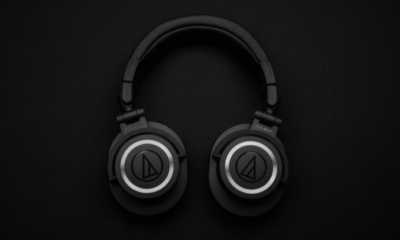EDITORIAL
Mic Check, Mind Check: Is podcasting good for your mental health?
Podcasting is everywhere – in our ears, on our screens, and increasingly, in our daily routines. Whether you’re a listener looking for comfort or a host putting your story into the world, podcasts can feel like lifelines. But as the medium grows in popularity, so do questions about its impact on mental health. Is podcasting good for you? Or is there more going on behind the mic?
The answer, like most things in mental health, isn’t simple. But it is worth exploring.
For Listeners: Companionship, Catharsis, and Clarity
For many, podcast listening is more than entertainment – it’s a form of emotional support.
Podcasts about mental health (Happy Place, The Mindset Mentor, The Mental Health Moles) can provide comfort, reduce stigma, and offer practical coping tools. Long-form interviews, comedy chat shows, and gentle storytelling (think You’re Wrong About or LeVar Burton Reads) help people feel less alone – especially during moments of anxiety, grief, or isolation.
During the pandemic, millions turned to podcasts as a substitute for social contact. In that context, listening wasn’t just passive – it was connection. The sense of intimacy that podcasting creates, with hosts speaking directly into your ears, fosters a kind of parasocial friendship that’s been shown to reduce feelings of loneliness.
Of course, not every show is soothing. Doom-scrolling through true crime or politics podcasts late at night isn’t exactly self-care. Like any medium, balance is key.
For Creators: Expression and Exhaustion
On the other side of the mic, podcasting can be both healing and hard.
Many podcasters describe their work as cathartic. It gives them space to process emotions, share lived experiences, or advocate for causes they care about. For some, it’s a creative outlet that helps fight depression or burnout. The ability to tell your story, in your own voice, on your own terms, can be profoundly empowering.
But there’s a flipside. Podcasting – especially independently – is a lot of work. Writing, editing, marketing, recording, monetising… the pressure to stay consistent and “grow your audience” can lead to stress and burnout. Mental health podcasters, in particular, often shoulder emotional labour and listener expectations while managing their own wellness behind the scenes.
If you’re podcasting for self-expression, that’s beautiful. If you’re podcasting and trying to be your own producer, social media manager, and therapist, it can become overwhelming fast.
The Danger of the Echo Chamber
There’s another layer worth considering: the echo chamber effect.
Some listeners gravitate toward podcasts that confirm their worldview. While this can feel validating, it can also isolate people from differing perspectives – or deepen anxiety around certain topics (especially when consuming endless content on trauma, true crime, or global crises).
Podcasts are powerful, but they’re not always curated with mental wellbeing in mind. It’s up to listeners to tune into what feels nourishing and know when to switch off.
So… Is Podcasting Good for Your Mental Health?
In many cases, yes.
For listeners, it can provide community, knowledge, and a sense of calm. For creators, it can be a platform for healing, creativity, and connection. But like any tool, its impact depends on how – and why – you use it.
Some tips:
- As a listener: Curate your feed with care. Choose shows that leave you feeling better, not worse. Take breaks. You don’t need to finish every episode.
- As a creator: Set boundaries. Be honest with your audience about what you can (and can’t) offer. Ask for help. Prioritise rest.
- For everyone: Remember that real mental health support goes beyond podcasts. They can inspire and educate – but they’re not a substitute for therapy or clinical care.
Final Thoughts
Podcasting is a uniquely intimate, human medium – and that’s its superpower. When done thoughtfully, it fosters empathy, encourages reflection, and makes people feel seen and heard. And in a world that often feels loud and disconnected, that alone is good for all our mental health.
Just don’t forget to press pause when you need it.













